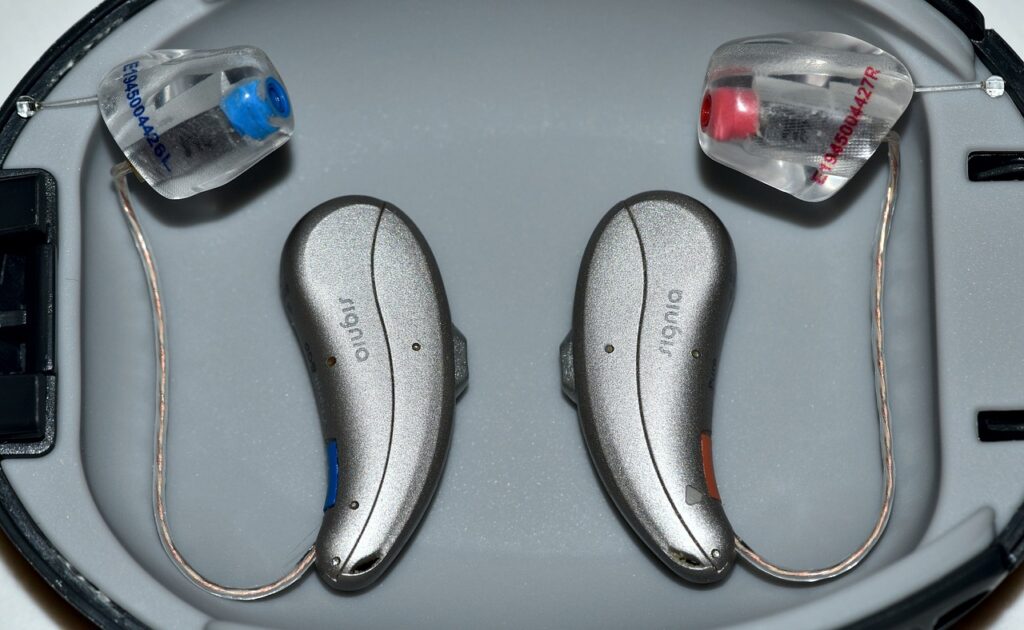The ability to hear and communicate effectively is essential for maintaining a high quality of life. For many individuals with hearing loss, hearing aids offer a significant improvement in their daily functioning. However, the cost of hearing aids can be a barrier for those who need them, leading to limited access to this vital assistive technology. In the United States, Medicare plays a crucial role in providing healthcare coverage for seniors and certain individuals with disabilities. In this article, we will explore the coverage options for hearing aids under Medicare and the recent developments in expanding access to these devices.
Understanding Medicare Coverage
Medicare is a federal health insurance program that primarily serves individuals aged 65 and older, as well as some younger individuals with disabilities. Part A (hospital insurance), Part B (medical insurance), Part C (Medicare Advantage plans), and Part D (prescription medication coverage) are all included. While Medicare provides coverage for a range of medical services, including doctor visits and hospital stays, the coverage for hearing aids has historically been limited.
Medicare Part B and Hearing Services
Medicare Part B, the medical insurance component of Medicare, covers medically necessary services and supplies. However, traditional Medicare does not generally cover routine hearing exams or hearing aids. This exclusion is based on the notion that hearing aids are considered elective devices rather than medically necessary items. As a result, individuals seeking hearing aids have had to rely on private insurance plans or pay out-of-pocket expenses.
Medicare Advantage Plans
Medicare Advantage (Part C) plans are provided by Medicare-approved commercial insurance firms. These plans provide an alternative way to receive Medicare benefits, often with additional coverage options beyond what original Medicare provides. Some Medicare Advantage plans offer coverage for hearing aids and related services as an added benefit. These plans may have specific criteria, such as prior authorization requirements or limitations on coverage amounts. Therefore, individuals considering Medicare Advantage should carefully review the plan’s details to determine if hearing aids are covered and what conditions or restrictions may apply.
Recent Changes and Expansions
Recognizing the importance of hearing health and the impact of untreated hearing loss, recent developments have sought to expand coverage options for hearing aids under Medicare. In 2020, the Over-the-Counter Hearing Aid Act was signed into law, authorizing the sale of certain types of hearing aids directly to consumers without the need for a prescription. While this law does not mandate coverage under Medicare, it opens the door for increased accessibility and affordability of hearing aids in the market.
In addition, the Medicare Audiologist Access and Services Act (MAASA) has been introduced in Congress with the aim of improving access to audiology services and hearing aids for Medicare beneficiaries. If passed, MAASA would allow audiologists to be recognized as practitioners under Medicare, enabling them to provide essential hearing healthcare services and access to hearing aids without requiring a referral from a physician.
Furthermore, some Medicare Advantage plans have started to offer expanded coverage for hearing aids. As Medicare Advantage plans have more flexibility in designing their benefits, they may choose to include hearing aids as part of their coverage options. This increased flexibility has the potential to improve access to hearing aids for those enrolled in Medicare Advantage plans.

Conclusion
While traditional Medicare does not currently provide coverage for routine hearing exams or hearing aids, recent developments and proposed legislation show promising signs for expanded access to these essential devices. The Over-the-Counter Hearing Aid Act and the potential passage of the Medicare Audiologist Access and Services Act could help bridge the gap and ensure that Medicare beneficiaries have better access to hearing aids. Individuals considering hearing aids should carefully review their Medicare coverage options and explore whether their Medicare Advantage plan offers any additional benefits related to hearing health.
At Retirement Answer Team, we understand the importance of comprehensive healthcare coverage during retirement. Our team of experts is dedicated to helping individuals navigate the complexities of Medicare and find a plan that suits their needs. If you have questions about your coverage or plan, our knowledgeable agents are here to provide guidance and support. Contact us today to learn more about how we can assist you in securing the best healthcare options for your retirement years.
Remember, better hearing leads to improved communication, enhanced quality of life, and increased independence. Don’t hesitate to reach out to Retirement Answer Team for personalized assistance and peace of mind regarding your Medicare coverage.

